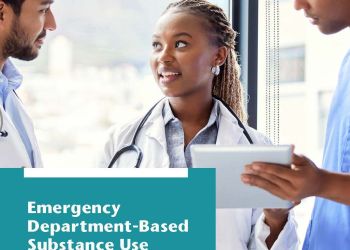A Statement from the National Association of County and City Health Officials and the Big Cities Health Coalition
Washington, DC, September 18, 2020 — On behalf of the nation’s local governmental public health departments, the National Association of County and City Health Officials (NACCHO) and the Big Cities Health Coalition (BCHC) applaud the U.S. Centers for Disease Control and Prevention (CDC) for their decision today to clarify their updated testing guidance to make clear any close contacts of a person with documented SARS-CoV-2 infection should be tested, even if they do not have any symptoms. Today’s clarification helps ensure that our national guidelines are based on the best available science and data.
Local public health departments rely on asymptomatic testing of close contacts, in particular, to find hidden infection, inform case investigation efforts, trace contacts, and contain clusters of outbreaks. This had been the policy until a reversal last month that removed the recommendation for asymptomatic people, including close contacts of a person with a documented COVID-19 infection, to be tested. This caused great confusion for the general public, but also for public health professionals who noted that CDC’s own research suggested that as many as 40 percent of COVID-19 cases are attributable to asymptomatic transmission. As such, our organizations—on behalf of the nation’s local health departments—called for the clarification that has been made today.
An updated CDC webpage now includes a note clarifying the guidance: “Due to the significance of asymptomatic and pre-symptomatic transmission, this guidance further reinforces the need to test asymptomatic persons, including close contacts of a person with documented SARS-CoV-2 infection.” It also highlights the need for self-quarantine over the 14-day period, even in one receives a negative test, as a single negative test does not mean someone will remain negative at any time point after that test. This is sound public health practice and will help as local health departments continue to lead on the front lines of this response.
We are hopeful that CDC will work quickly to update any other documents to ensure that this clarification is understood and adopted across the country. BCHC and NACCHO thank the CDC for listening to the concerns of the public health experts in the field and issuing today’s clarification.
###
About NACCHO
The National Association of County and City Health Officials (NACCHO) represents the nation’s nearly 3,000 local health departments. These city, county, metropolitan, district, and tribal departments work every day to protect and promote health and well-being for all people in their communities. For more information about NACCHO, please visit www.naccho.org
About the Big Cities Health Coalition
The Big Cities Health Coalition (BCHC) is a forum for the leaders of America’s largest metropolitan health departments to exchange strategies and jointly address issues to promote and protect the health and safety of their residents. Collectively, BCHC member jurisdictions directly impact nearly 62 million people, or one in five Americans. For more information, visit http://www.bigcitieshealth.org.




